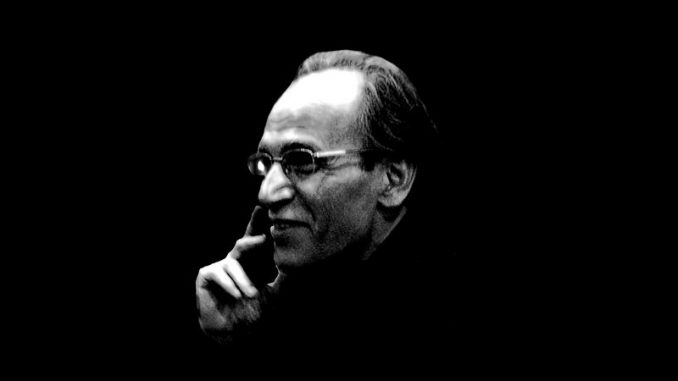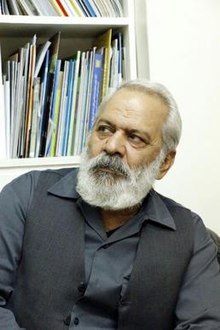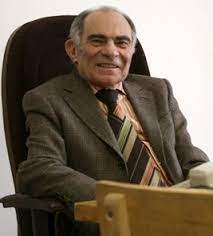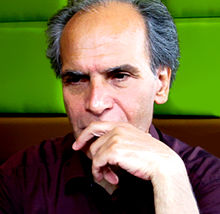
In the midst of the Covid19 pandemic, May 2021 is marked by a huge cultural loss, as regrettably five eminent figures of culture, arts and literature of Iran passed away during this month:
Ghasem Ahaninjan (September 17, 1958 – May 4, 2021)

He was an Iranian poet, literary critic and filmmaker. He was born in Ardabil, but a while later emigrated with his family to Ahvaz, in Khuzestan province in 1963, where he spent his adolescence in the CIDYCA and soon flourished into a young artist under the supervision of directors such as Kianoosh Ayari. He started his artistic career in 1985 and made his debut feature film, titled “The Neighing of the Sore” a year later – it was a silent film with pieces from Bob Dylan’s music.
By the 1980s, Ahaninjan had become a published poet, whose poetry appeared in in Donya-ye Sokhan. By the time of his death, he had published eleven collections of poetry. Ahanjanjan died of cancer on the evening of May 4, at the age of 62. He was a prominent poet of the South region whose work was applauded by renowned critics like Reza Baraheni, Mohammad Hoghoughi, and Mohammad-Ali Sepanlou. His poetry was marked with abstraction and illumination in thought and speech, which at times revealed similarities to the elements of Naab (Pure) Poetry Movement (that was founded in the 1970s by Manouchehr Atashi).
Mansour Owji (1937 – May 8, 2021)

Owji was an Iranian poet and writer. He was born in Shiraz and was a school tear and university professor there before he finally resigned from all teaching duties in 2009 to focus on his poetic career.
Mansour Owji was among the oldest members of the Writers’ Association of Iran (1967-1968) and a renowned participant in the Khusheh Poetry Nights (held by Ahmad Shamlou, 1967-1968) and the Ten Nights of Poetry held by the Writers’ Association of Iran (1978-1979). Owji passed away on May 8, 2021 in Shiraz, having suffered from liver failure for years. A complete profile of the poet, authored by researcher Farhad Taheri, is available here.
Mohammadreza Bateni (Jan 5, 1935 – May 11, 2021)

Dr Bateni was a prominent Iranian linguist, lexiconist and scholar. He graduated in English language and literature from Daneshsara-ye Aali (Institute of Higher Education) in Tehran and obtained his Master’s and Doctoral degrees in linguistics from University of Leeds and University College London, respectively. Bateni also formerly worked at MIT and University of California, Berkeley, as a researcher and professor after his early and involuntary, retirement from Tehran University.
Dr Bateni published numerous books and journal papers on the function of Persian as an open language subject to evolution over time. Some of his works include “A New Glance at Grammar”, “A Description of Persian Language Structure,” and “Let us NOT Write it Right: a response to Abolhassan Najafi.”
Perhaps Bateni’s most significant contribution is his English to Persian Dictionary published by Farhang Moaser the third edition of which embraces about 60,000 entries in addition to numerous subentries and examples. This edition, aka POOYA DICTIONARY, published in 2006, is the result of over 20 years of research by Dr. Bateni and his associates at the Research Unit of Farhang Moaser Institute.
Mahmoud Nikbakht (1951 – May 24, 2021)

A literary critic, translator, and researcher who was born to a cultural family in Isfahan and soon became a respectable member of Jong-e Isfahan (a literary Circle founded during the 1960s by Houshang Golshiri and his iconoclastic peers who opposed the long-held literary canons of Persian literature and published the Jong-e Adabi magazine in Isfahan). Nikbakht was admitted to the circle a decade later and as a younger member, was contemporaneous with Reza Farokhfal, and Mohammad Hoghoughi. Poetry was his area of expertise and he had translated the poetry of many figures from English, Italian and French, introducing the poetic theories of Ezra Pound, T. E. Hume, and Octavio Paz, to name a few.
Nikbakht believed that cultural territories of genuine, academic and journalistic literature should be apart; otherwise genuine literature would be subject to serious deformity and damage. Nikbakht was an academic himself, and as a university professor, he hoped to raised a generation of young writers who would prefer genuine literature over media-oriented productions.
Nikbakht was a published poet and had also published numerous volumes of research on contemporary Persian literature, including:
- The Poetics of the Blind Owl: A Narratological Study of Psychosis as Technique, Goman Pub, 2016.
- From Thought to Poetry: The Problem of Ahmad Shamlou, Hasht-Behesht Pub, 1995.
- From Loss to Liberation: The Poetry and Life of Forough Farrokhzad, Mashal Pub, 1993.
Esmail Khoi (Jun 30, 1938 – May 25, 2021)

He was born in Mashhad and graduated from the Daneshsara-ye Ali College with distinction, which brought him a scholarship to study Philosophy in University of London. Having obtained his PhD, he returned to Iran to teach as a university professor and in the meantime wrote and published poems. His reputation as a cultural figure was mostly due to his founding membership to the Writers’ Association of Iran and sociopolitical activism with leftist tendencies, such as advocacy of the Fedai Guerrillas in the tumults of the Revolution . He finally fled the country in 1984 to settle in London and represent the Iranian writers in exile. Voice of Exile including a translation of his poetry brought him a Friedrich Rückert prize for poetry. The poems of Khoi often reveal the author’s philosophical mindset. He passed away in London as a result of severe pneumonia.


Leave a Reply